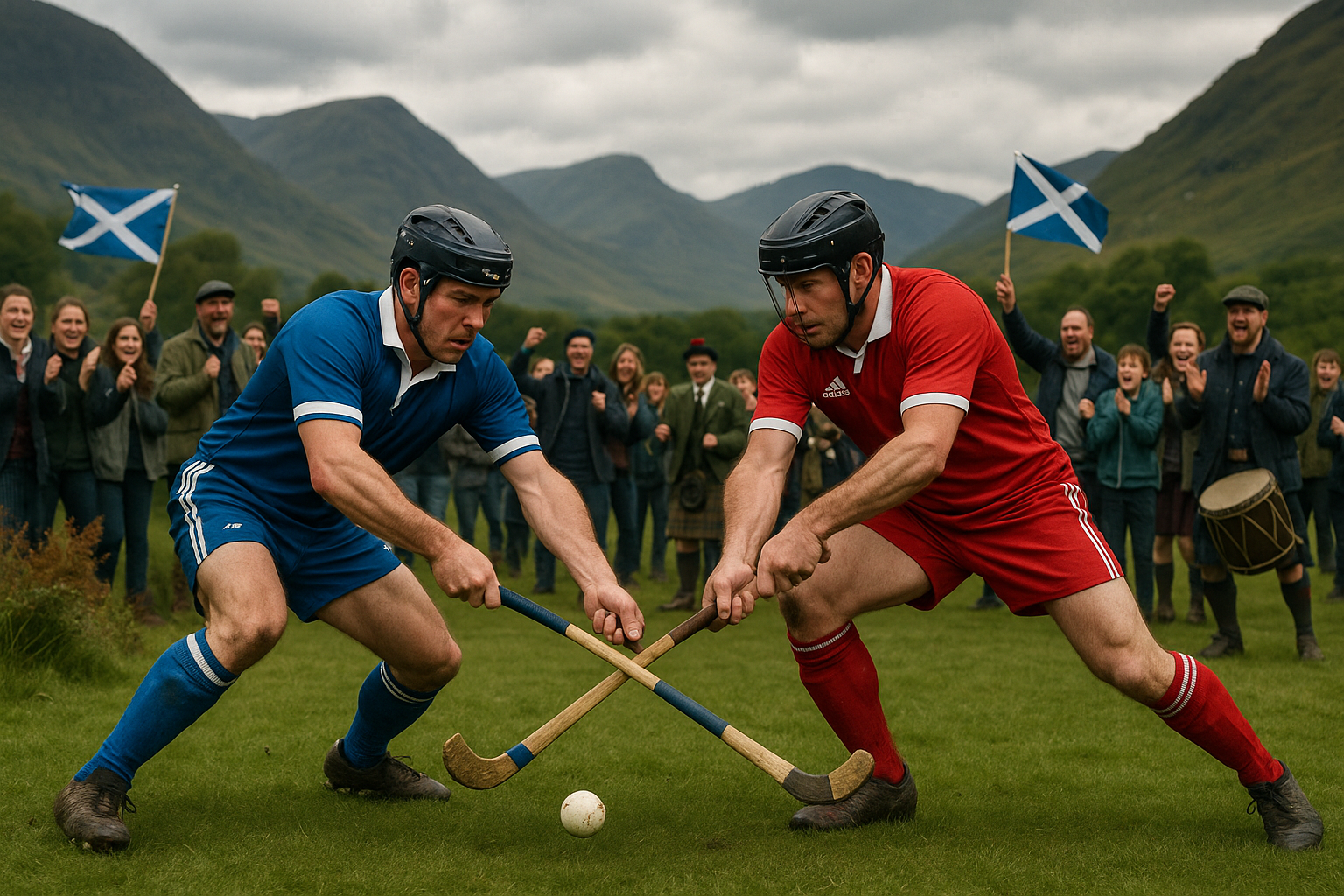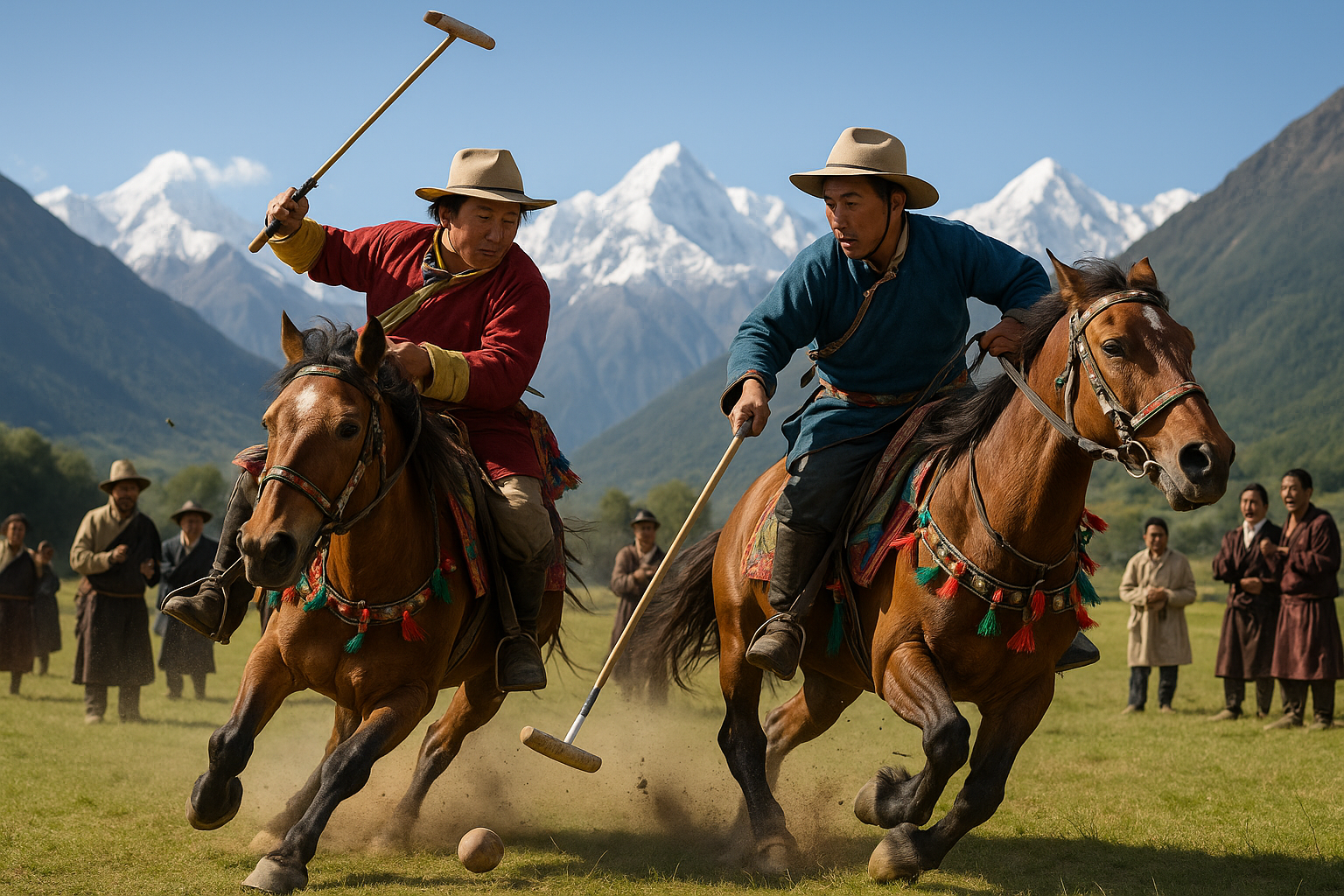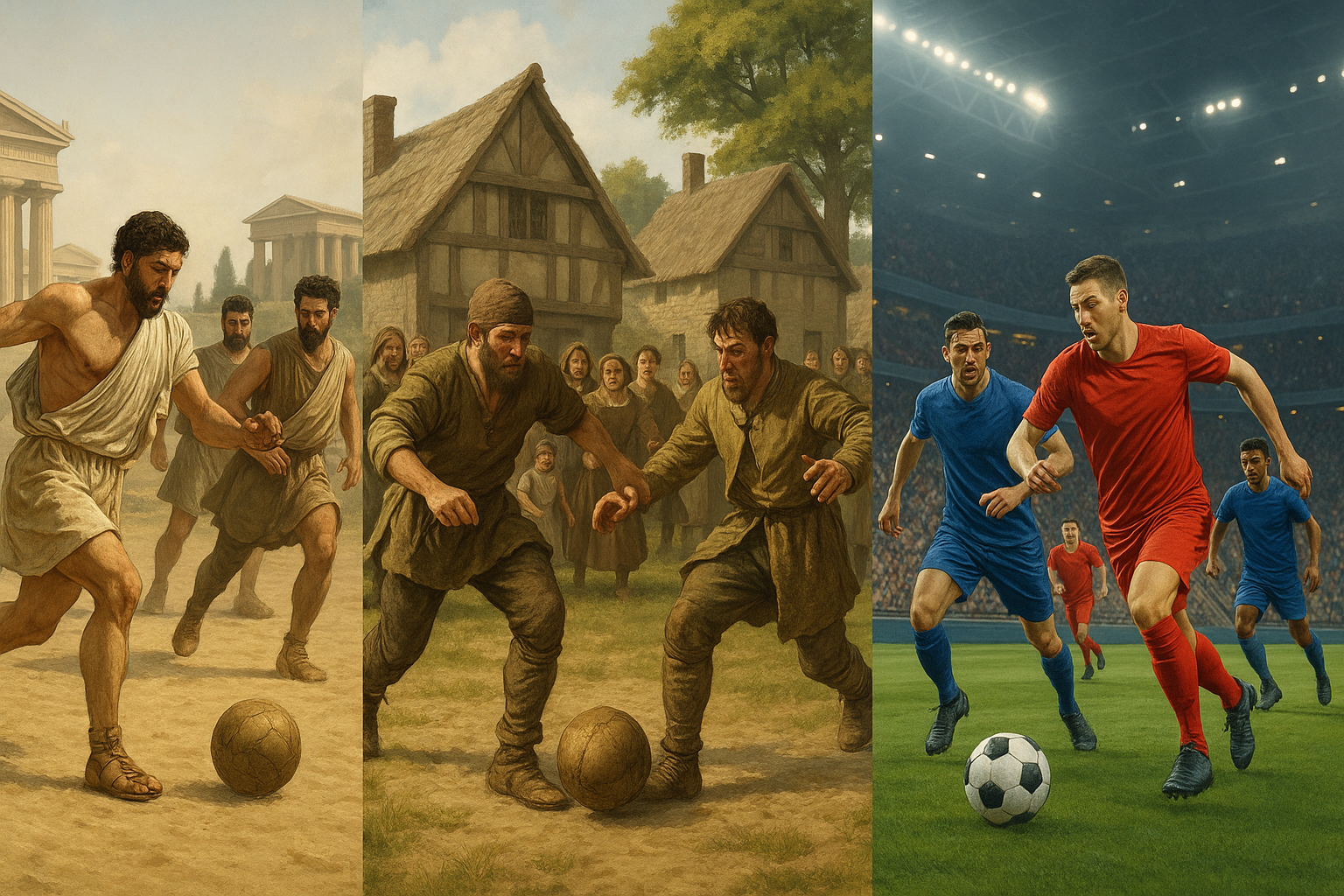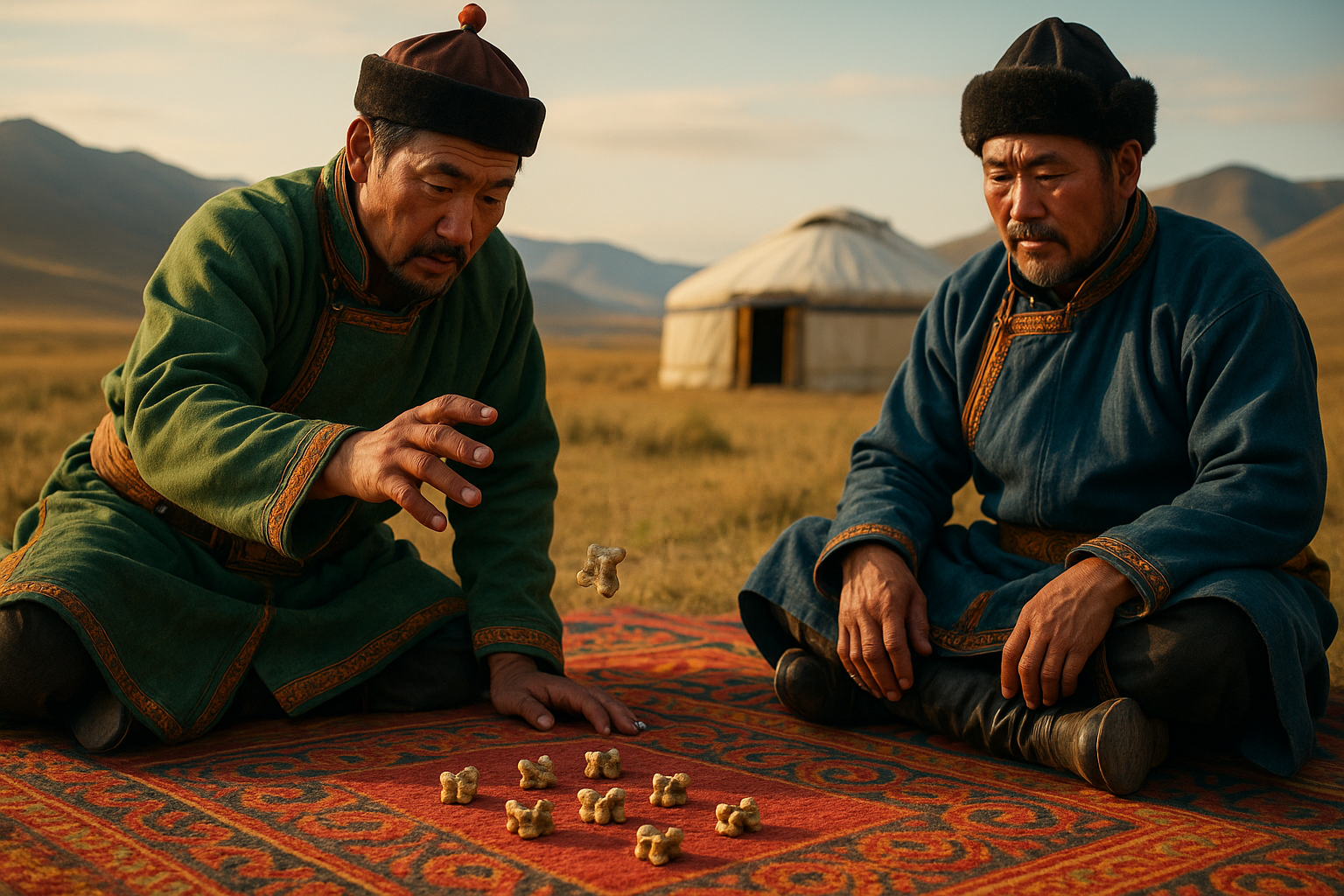Imagine a game that combines the rapid reflexes of table tennis, the strategic depth of chess, and the sheer athleticism of tennis. Welcome to the world of Traditional Basque Pelota, a sport that not only tests your physical limits but also sharpens your mental agility. Known for its fast-paced action and intense competition, Basque Pelota offers an exhilarating experience that is both timeless and contemporary. 🎾
Originating from the Basque Country, this game has transcended its regional roots to capture the imagination of sports enthusiasts worldwide. But what makes Basque Pelota so captivating? Why does it continue to attract players and fans alike, even in a world overflowing with modern sports options? The answer lies in its unique blend of history, skill, and adaptability, making it the ultimate test for anyone eager to unleash their competitive spirit.
Basque Pelota is not just a sport; it’s a tradition that has been passed down through generations, evolving while maintaining its core essence. Whether you’re new to the game or a seasoned player, the dynamic nature of Pelota ensures there’s always something new to learn and master. From the moment you step onto the court, you’re not just playing a game—you’re becoming part of a living heritage.
In this article, we will delve deep into the world of Traditional Basque Pelota, exploring its rich history and cultural significance. You’ll discover how this ancient sport has managed to stay relevant in today’s fast-paced world, continuously challenging and captivating those who dare to take it on.
History and Cultural Roots
To truly appreciate Basque Pelota, one must understand its origins. This sport dates back centuries, with roots intertwined in the social and cultural fabric of the Basque people. We will explore the historical journey of Pelota, examining how it has adapted over the years while remaining true to its origins. The rich tapestry of stories and traditions surrounding the game offers valuable insights into its enduring appeal.
Skills and Techniques
What does it take to excel in Basque Pelota? The sport demands a unique set of skills, combining physical prowess with strategic thinking. In our exploration, we’ll break down the key techniques that players must master, from the powerful strokes to the artful dodges. Each move is a testament to the player’s agility and precision, making every match a thrilling spectacle.
Modern-Day Relevance
Despite its ancient roots, Basque Pelota remains relevant today, drawing players and audiences from across the globe. We will examine how this traditional sport has adapted to contemporary times, embracing new technologies and innovations without losing its soul. Whether through international tournaments or community games, Pelota continues to inspire and engage people of all ages.
The Ultimate Test
Basque Pelota is more than just a game—it’s a challenge that pushes you to your limits. The fast-paced nature of the sport tests not only your physical capabilities but also your mental resilience. It’s a game where strategy meets athleticism, offering a unique platform for personal growth and competitive spirit.
Are you ready to unleash your competitive spirit? Join us as we explore the fascinating world of Traditional Basque Pelota, where every match is a battle of skill, agility, and willpower. 🏆 Whether you’re a player or a spectator, the allure of Pelota is undeniable, promising an experience that is as enriching as it is exciting. Stay tuned as we unravel the secrets of this extraordinary sport, offering you insights and inspiration to embrace the challenge it presents.
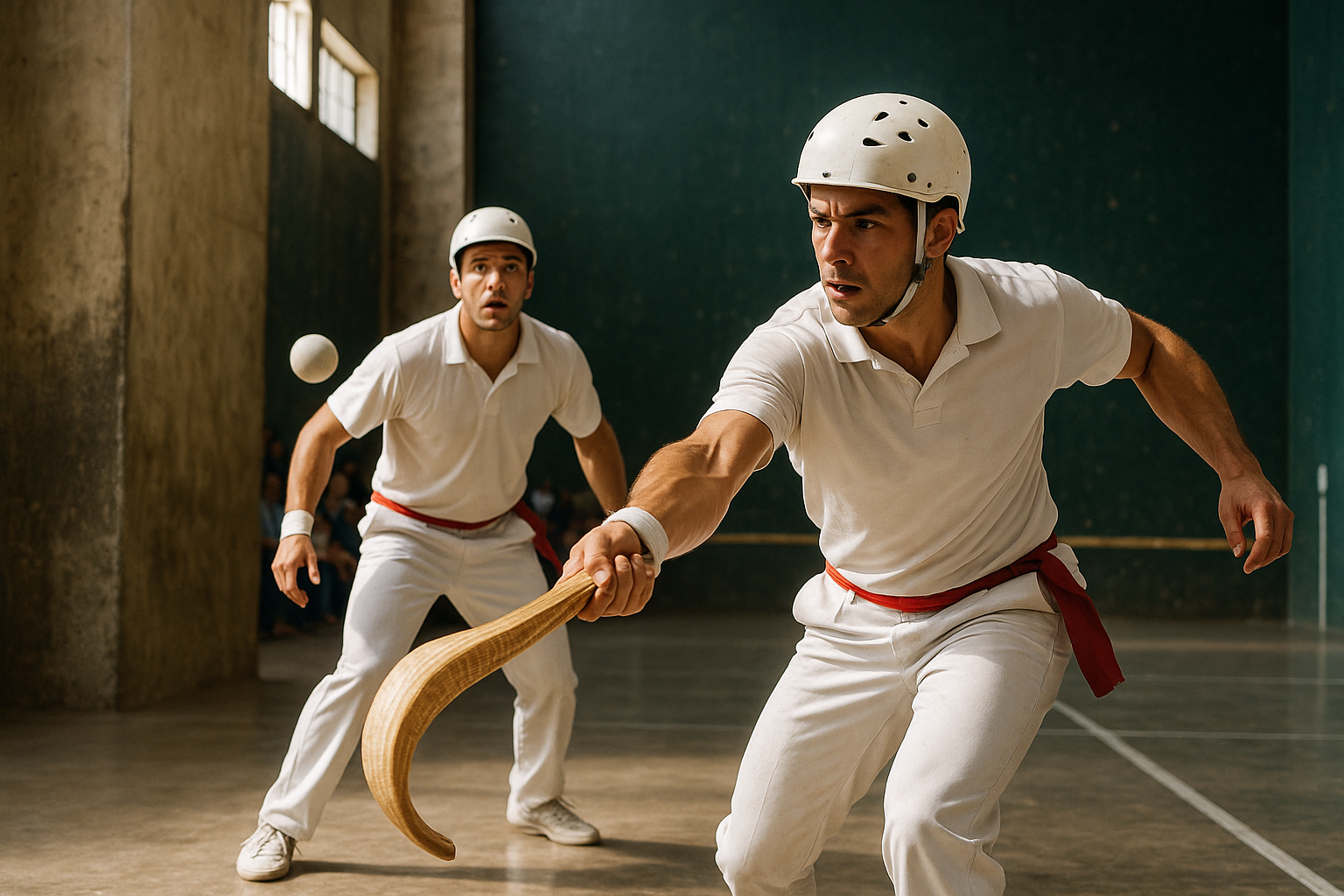
Conclusion: Embrace the Thrill and Challenge of Traditional Basque Pelota 🎾
As we wrap up our exploration into the captivating world of Traditional Basque Pelota, it’s evident that this sport is much more than just a game; it is a profound testament to human skill, agility, and cultural heritage. We’ve delved into its historical roots, which trace back to ancient times, and examined how it has evolved to become a beloved sport across the globe.
One of the key takeaways from our discussion is the remarkable versatility of Basque Pelota. With various modalities such as Jai Alai, Hand-Pelota, and Pala, each offers its own unique challenges and appeals. This diversity not only enhances the sport’s allure but also caters to a wide range of athletic skills and preferences. Whether you’re someone who thrives on speed and precision or prefers strategic gameplay, there’s a version of Basque Pelota for you.
The importance of community and cultural identity cannot be overstated when it comes to Basque Pelota. It is deeply woven into the fabric of Basque society, fostering a sense of unity and pride. For players and enthusiasts alike, engaging in this sport is a way to connect with cultural traditions while also pushing personal boundaries.
Moreover, the physical and mental benefits associated with playing Basque Pelota are substantial. The sport demands high levels of coordination, agility, and endurance, making it an excellent way to stay fit and focused. As players develop their skills, they also cultivate discipline, resilience, and strategic thinking — qualities that are valuable both on and off the court.
In the digital age, where virtual interactions often overshadow physical ones, Basque Pelota offers a refreshing opportunity to engage in a tangible, exhilarating experience. Its emphasis on sportsmanship and respect for tradition resonates with anyone seeking authenticity in their athletic pursuits.
Now, as you stand at the threshold of this dynamic sport, consider how you might bring the lessons of Basque Pelota into your own life. Whether it’s by participating in local games, immersing yourself in the vibrant community of players and fans, or simply adopting the sport’s values of perseverance and respect, there are myriad ways to apply what you’ve learned.
We encourage you to share your thoughts on Basque Pelota. Have you played before, or is this your first introduction to the sport? What aspects of it resonate with you the most? Your insights and experiences could inspire others to discover this enriching sport. Feel free to comment below or share this article with friends and family who might be intrigued by the unique charm of Basque Pelota.
For those eager to delve deeper, a wealth of resources is available to guide your journey. The offers comprehensive information on rules, events, and training opportunities. Additionally, you can explore for insights into international competitions and player profiles.
In conclusion, embracing the competitive spirit of Traditional Basque Pelota can be an ultimate test of skill and agility, one that offers unparalleled rewards. May this ancient sport ignite a passion within you, inspiring you to challenge yourself and celebrate the rich tapestry of human athleticism and culture. 🌟
This conclusion is designed to effectively summarize the article’s key points, encourage reader engagement, and provide resources for further exploration. It incorporates a humanized and professional tone, with strategic use of emojis to enhance engagement without overwhelming the text.
Toni Santos is a cultural movement researcher and traditional sport ethnographer specializing in the study of forgotten combat systems, historical ball game rituals, and the physical languages embedded in ancient athletic traditions. Through an interdisciplinary and movement-focused lens, Toni investigates how humanity has encoded discipline, competition, and tradition into physical play — across cultures, fields, and forgotten arenas. His work is grounded in a fascination with sports not only as games, but as carriers of hidden meaning. From ancient martial arts lineages to historical ball games and unusual solo challenges, Toni uncovers the visual and symbolic tools through which cultures preserved their relationship with the athletic unknown. With a background in movement semiotics and sporting heritage history, Toni blends visual analysis with archival research to reveal how games were used to shape identity, transmit memory, and encode community knowledge. As the creative mind behind tapzix.com, Toni curates illustrated sport taxonomies, speculative game studies, and symbolic interpretations that revive the deep cultural ties between athletics, folklore, and forgotten tradition. His work is a tribute to: The lost combat wisdom of Ancient Martial Arts Traditions The guarded rituals of Historical Ball Games and Their Origins The communal presence of Rural Team Sports and Folklore The layered physical language of Unusual Solo Games and Challenges Whether you're a sporting historian, movement researcher, or curious gatherer of forgotten athletic wisdom, Toni invites you to explore the hidden roots of traditional games — one move, one match, one tradition at a time.

